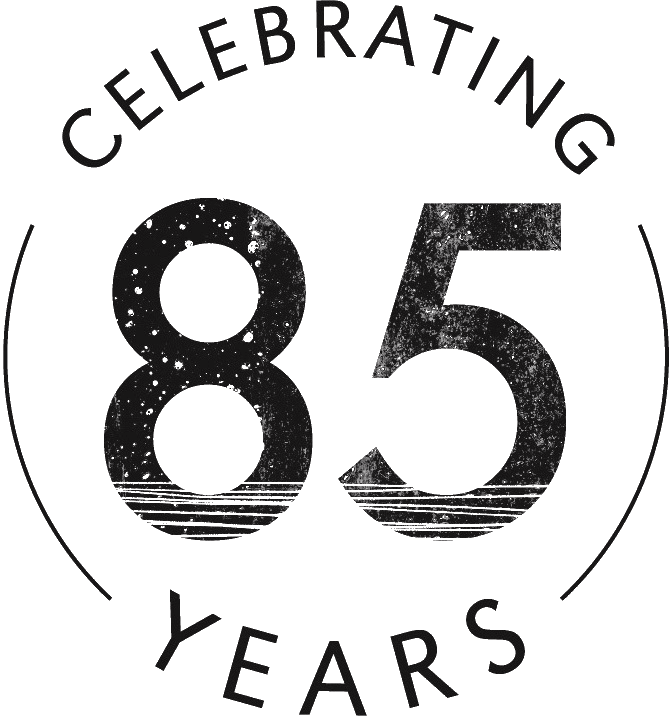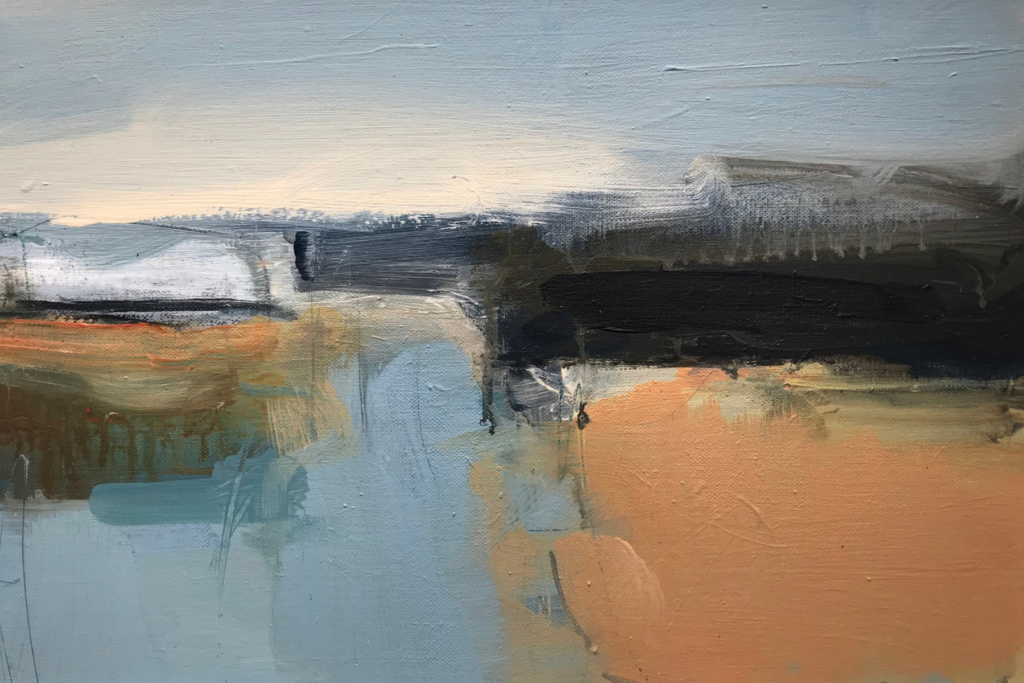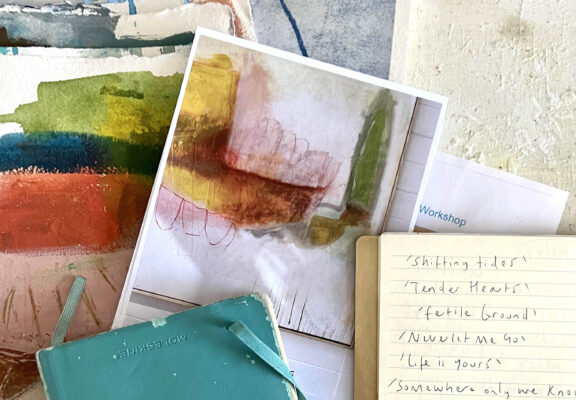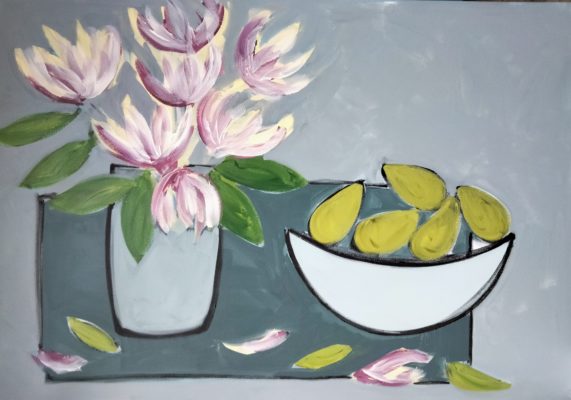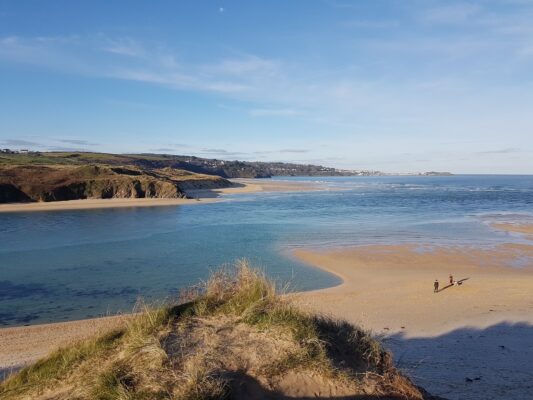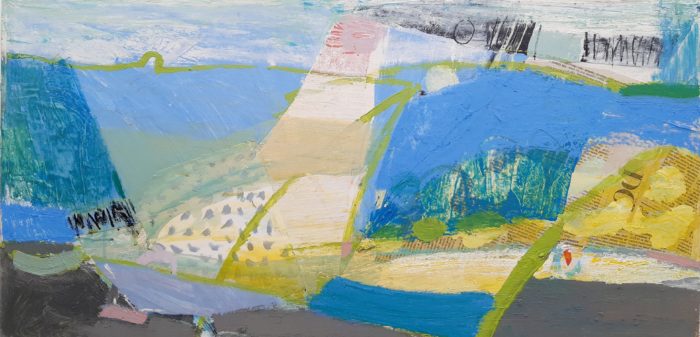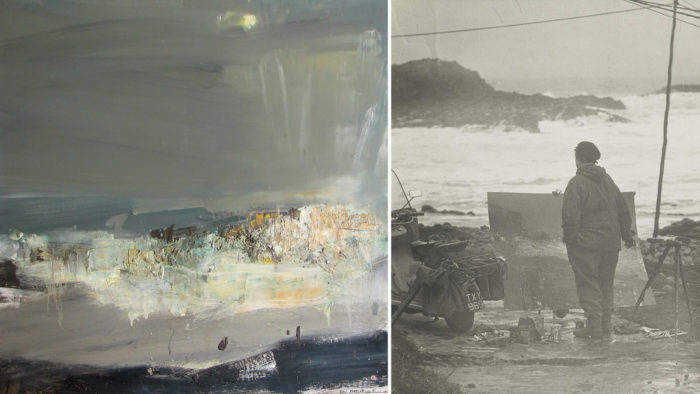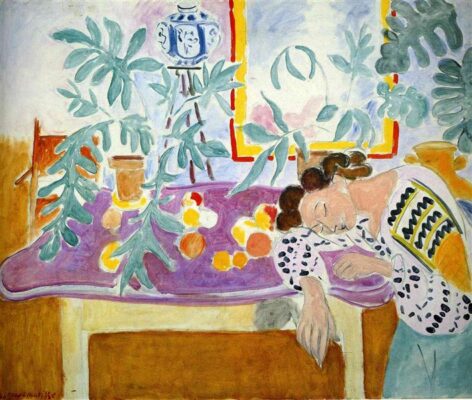Course details
Free up your practice and work more intuitively on this playful three-day course led by new tutor, Boo Mallinson.
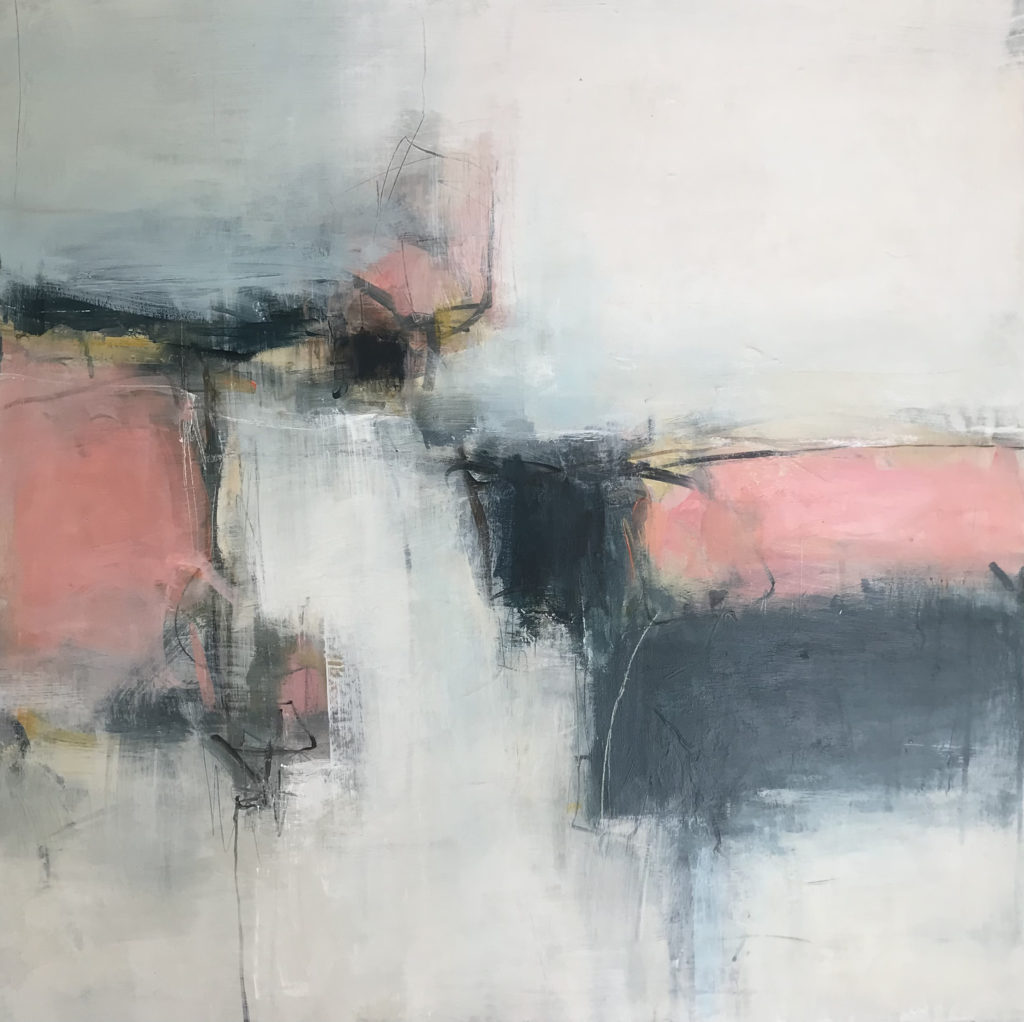
Join artist Boo Mallinson for this explorative three-day course using the landscape as a point of inspiration and departure. Using a combination of intuitive and expressive mark-making and simple studies from direct observation, learn to free up your practice and trust the process. A chance to discover your own visual vocabulary and appreciate the importance of play and spontaneity in the creative process.
Alongside her art practice, Boo is a trained meditation teacher so brings to her teaching a wealth of experience in this area. Art can be expressive, fun and free. It can also be a chance to focus, be present, to not overthink, and to observe the details around us. An essential component of the course will be becoming aware of the inner critic, and the self critical inner dialogue that can really hinder our intuitive responses.
Starting with mark-making in black and white, you will then (weather dependent) head out into the surrounding landscape of St Ives to gather lots of quick sample studies. Then, gathering your studies, reflect on which images draw you in, and which ones to discard. Moving into colour on days two and three, work across a series of paintings.
Leave with a series of art works and exploratory studies, as well as a sense of freeing up, letting go, and the endless possibilities available to your practice when you simplify your work. Disregard the rule book, ignore your inner critic, and most of all, play!
Day to day plan
This is a rough indication of what to expect over the course. However sometimes the structure of the days may alter depending on the nature of the group and weather.
Day 1
Decisive, bold, spontaneous mark-making in black and white. ‘One motion marks’ – the first day is spent exploring ways to free up your way of working using different media. Weather dependent, head out into the landscape and make lots of quick, simple studies. Notice where tension is held; drop your shoulders and be aware of overthinking!
Day 2
Assembling your work from the previous day, back in the studio, make decisions about what you’d like to keep and what you wish to disregard. Using colour, see how it can be descriptive and/or emotional and expressive. Working on a number of art boards, begin to explore composition. Think about what you would like your work to convey – calmness or a feeling of energy?
Day 3
Working across three or four paintings simultaneously, use the same limited colour palette and work towards finished pieces using what you have done in the previous few days. Paint, respond, add, subtract, erase and discover. Make decisions to pull the paintings together and leave with a number of art works as well as exploratory material to work from at home.
What will I learn?
- Learn to work more freely and intuitively.
- Build confidence in drawing and mark-making.
- Build a more expressive and expansive visual vocabulary.
- Disregard your inner critic and be fully present in your painting practice.
- See how colour can be not only descriptive but emotional and intuitive too.
Who would this course suit?
This course is suitable for anyone. If you are interested in loosening your approach to drawing and painting, as well as finding new ways of capturing the environment around you. Most importantly, this will be a chance to explore and experiment without judgement.
There will be some walking on the morning of the first day.
Taught by
What to Bring
Our studios are fully equipped and we provide you with all the materials you need for your course. However, if you have a favourite set of brushes or any specialist materials that you would prefer to use, please bring them with you.
Timings and Breaks
The first day starts at 10am and finishes at 4.30pm, please aim to arrive ten to fifteen minutes before the start time.
All course days after that start at 9.30am and finish at 4pm and there will be an hour for lunch. There are plenty of nearby places to eat and we will serve tea and coffee at break times during the day.
What our students say
Wow where to start! We had a fabulous three days. Boo is such a great teacher and gave us all lots of her time. I loved the fact that we all had a station with everything we needed, all the paints etc. Nothing was too much trouble the studio helpers were very good and kept us supplied with teas and biscuits. I will be looking forward to coming to another of Boo’s courses next year.
FAQs
Studio Courses
How can I get help in choosing a course?
Our friendly expert staff are always happy to discuss your needs and our courses in more detail to help you with your decision. Please call us on 01736 797180
How do I get my work home?
Tutors have special techniques for transporting oil paintings and the school has plastic folders available in our shop for £3.50 or do bring a portfolio.
For international students we are happy to arrange transportation of your work back home.
What do I need to bring?
Absolutely nothing! All materials and aprons are provided although some people do like to bring their own set of brushes.
What do I do for lunch?
Courses allow an hour’s break for lunch and there are numerous places nearby or you are welcome to bring a packed lunch into the studio.
What times do courses run?
Most of our courses start at 10am and end at 4.30pm on the first day. Subsequent days we start at 9.30am ending at 4pm.
Weekend Courses run 10am – 4pm on the first day but the final day starts at 9.30 and ends at 3.30 with a short lunch break to enable people to get home that evening.
Do you have to be experienced to come to the School?
The School is a very friendly and welcoming place for all ages and experience. Our drop-in life classes and August half-day workshops are ideal for those wanting to have a go for the first time. Most of our longer courses are also fine for novices.
If any of the courses do need a bit of experience we flag this up in the brochure and on the website.
Booking a Course
How can I reserve a place?
We will hold a provisional reservation for 24 hours if you give us a call whilst you find accommodation. Otherwise please book online or by telephone 01736 797180.
You can reserve a place with a £100 deposit; balance is due 12 weeks before course start date.
About St Ives
Where do I park?
The nearest long stay public car parks are the Island and Barnoon Long Stay Car Park, both a 5 minute walk away. In the peak summer months it may be easier to park at Trenwith Car Park by the leisure centre and walk down into town. If you don’t fancy the walk up the hill at the end of the day there is a shuttle bus which runs from outside the cinema.
How do I get there?
Public Transport: If you are coming from further afield the main train line runs into St Erth which is a 15 min taxi ride away or you can take the St Ives Bay Line which runs approx. every 30 minutes. The School is a 10 minute walk from St Ives station.
Driving: M5 will take you to Exeter where we recommend that you take the A30 across Bodmin Moor and into Cornwall. After passing Hayle, leave the A30 at St Erth roundabout for St Ives. Turn right at the second roundabout. This road will take you through Lelant and Carbis Bay into St Ives.
Where can I stay?
St Ives has a huge selection of hotels, guest houses and self catering accommodation to choose from. Please browse the art holidays St Ives section on our website and give us a call if you would like any help.
